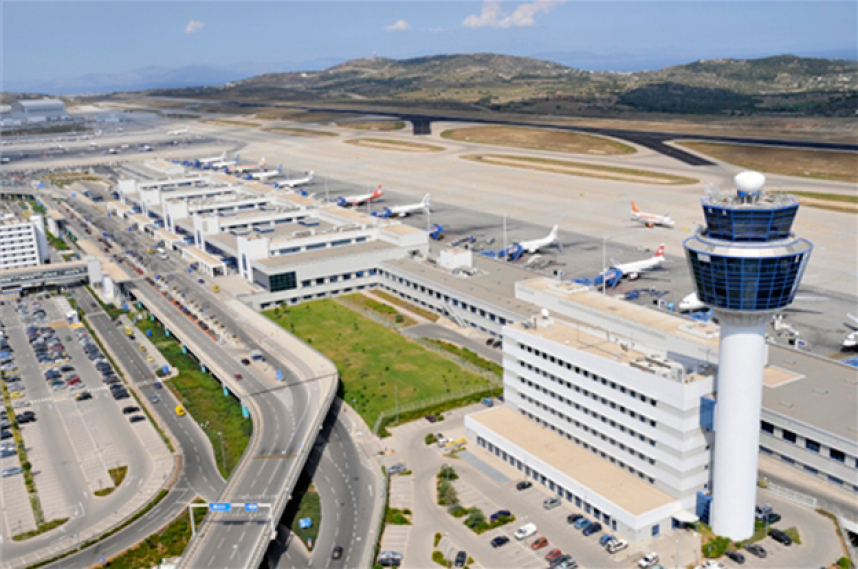
The Hellenic Civil Aviation Authority (HCAA) on Friday extended its Covid-19 aviation directives concerning travel rules for passengers and restrictions for all international flights until September 17.
Greece’s aviation directives are part of the Greek government’s efforts to curb the spread of the coronavirus (Covid-19) in the country.
Travel rules for international arrivals - Who is allowed entry to Greece
Greece is open for travelers from all EU & Schengen Area countries and has a ban on travelers from non-EU countries.
However, people traveling for essential reasons and travelers from the following 36 non-EU countries and territories are allowed to enter Greece – provided they have the required documentation – without the requirement for subsequent self-isolation: Australia, Northern Macedonia, United Arab Emirates, United States of America, United Kingdom, Israel, Canada, Belarus, Bahrain, New Zealand, South Korea, Qatar, China, Kuwait, Ukraine, Russia, Saudi Arabia, Serbia, Singapore, Bosnia and Herzegovina, Montenegro, Albania, Japan, Lebanon, Azerbaijan, Armenia, Jordan, Moldova, Brunei, San Marino, Andorra, the Vatican, Monaco, Turkey, Kosovo, and Chinese Taipei.
Entry requirements
Greece will allow entrance to travelers that have filled out the Passenger Locator Form (PLF) any time before the departure of their flight. The PLF is mandatory and must be filled out by all travelers, regardless of their nationality. The PLF can be found here.
Passengers from abroad must also have one of the following:
1. a vaccination certificate, stating that 14 days have passed since full vaccination for Covid-19. Vaccination certificates must be issued by a public authority and in one of the following languages: Greek, English, French, German, Italian, Spanish or Russian. The name on the vaccination certificate must match the name on the passport and also include, the type of vaccine administered, the number of doses, and the dates they were administered. (The rule is in force for children over the age of 12 born after July 1, 2009.)
2. a negative PCR test is performed within 72 hours before travel or a negative rapid antigen test is performed within 48 hours before travel. Negative test results must be issued by an authorized laboratory and in one of the following languages: Greek, English, French, German, Italian, Spanish or Russian. The name on the vaccination certificate must match the name on the passport. (The rule is in force for children over the age of 12 born after July 1, 2009.)
3. recovery certificate. Travelers can present a medical/recovery certificate issued thirty days after they first tested positive for Covid-19 (the certificate is valid for entry to Greece 180 days after its issue date). The certificate must be issued by a public authority or a certified laboratory in one of the following languages: English, French, German, Italian, Spanish, or Russian. (The rule is in force for children over the age of 12 born after July 1, 2009.)
4. an EU Digital COVID Certificate in digital or print form which will contain information on whether passengers have been vaccinated against Covid-19 or have a negative PCR test performed within 72 hours before travel or a negative rapid test performed within 48 hours before travel or have recovered from the virus. (The rule is in force for children over the age of 12 born after July 1, 2009.)
Important for travelers from Russia
All travelers from Russia arriving in Greece must have a negative PCR test performed within 72 hours before travel or a negative rapid antigen test performed within 48 hours before travel. The measure is mandatory and applies to all travelers from Russia, whether they are vaccinated for Covid-19 or not.
All travelers from Russia must also undergo a rapid test at the airport upon arrival in Greece (see below). The measure is mandatory.
Rapid testing on arrival for some travelers
Greek National Public Health Organization's (EODY) crew this week conducted COVID-19 tests on passengers of international flights that arrived on the island of Kos.
Rapid testing mandatory for unvaccinated travelers from 16 countries
Unvaccinated travelers entering Greece from the following 16 countries – regardless of nationality – must undergo a mandatory Covid-19 rapid test at the airport they arrive at Egypt, Albania, Argentina, Bulgaria, Brazil, Georgia, Cuba, the United Arab Emirates, India, China, Libya, Morocco, North Macedonia, Pakistan, Russia, and Turkey. Travelers that test positive for Covid-19 will be obliged to take a PCR test and receive further instructions.